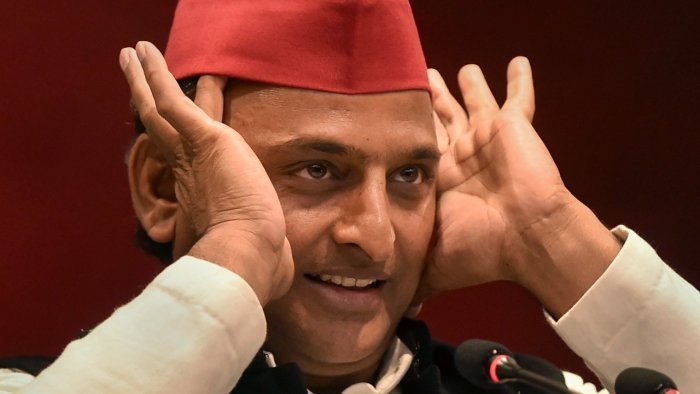
Lucknow, Jan 13: The resignation of three ministers in three days and the subsequent photos being uploaded with Samajwadi Party (SP) chief Akhilesh Yadav has changed the dynamics of Uttar Pradesh politics.
Till a few days back the BJP was confident of winning back the state but the resignations have sent jitters down the spines in the BJP camp. The question is, whether there is an undercurrent in favour of the Samajwadi Party which is perceived to be the biggest gainer from these exits from the saffron party.
The SP is having the last laugh in terms of defections as all roads lead to the party office on Vikramaditya Marg in Lucknow. The rebels from the BJP BSP and the Congress are lining up at Akhilesh Yadav's door, which analysts believe is in favour of the SP, as leaders like Maurya have a strong ground presence and feedback.
Delhi based independent analyst Shakil Akhtar says, "there is a feeling in the defectors that they can't return to their constituency on a BJP symbol so they went to the party which has social justice in it roots while the BJP was dependent on social engineering."
The experts believe that the real issues are inflation, Covid deaths, stray animals, unemployment and the BJP has not been able to gauge the minds of its own MLAs and ministers.
Dharam Singh Saini on Thursday became the third minister after Swami Prasad Maurya and Dara Singh Chauhan quit the Yogi Adityanath led BJP government. Saini was Minister of State (Independent Charge), Ayush, Food Security and Drug Administration.
After sending his resignation to the Governor, he went to meet Samajwadi Party president Akhilesh Yadav. Interestingly, in his resignation letter, Saini levelled the same allegation that other legislators had levelled against the Yogi government.
Saini, who represents the Nakud Assembly seat which is in western UP, has returned the security cover and residence allotted to him by the state government. He said he was resigning due to "gross neglect" of Dalits, backwards, farmers, unemployed youth and small traders.
After legislators belonging to the OBC category left the BJP, it is now a Brahmin MLA Bala Prasad Awasthi who has also walked into the Samajwadi Party fold.
Awasthi is a four-term MLA from Lakhimpur Kheri and a known Brahmin face in the Terai region. He also met Akhilesh Yadav on Thursday afternoon.
Earlier, Swami Prasad Maurya, Dara Singh Chauhan (both ministers) Roshan Lal Varma, Brijendra Prajapati, Bhagwati Sharan Sagar, Vinay Shakya and Avatar Singh Bhadana left the party in the past two days.
On Thursday, Mukesh Varma from Firozabad sent in his resignation. Then Dharam Singh Saini followed suit.






Comments
Add new comment